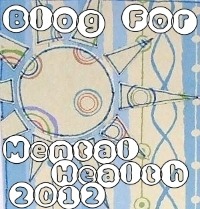As described in my first post, an overview of interpersonal effectiveness, there are 3 main goals in interpersonal effectiveness:
1) Object Effectiveness
2) Relationship Effectiveness
3) Self Respect Effectiveness
For each of these goals, there is an acronym to help you remember how to achieve them.

Object Effectiveness – gaining your objectives/goals in any given situation
- Obtaining your rights
- Getting others to do as you request
- Refusing requests from others
- Resolving interpersonal conflicts
- Getting your point of view taken seriously
The acronym used to remember the skill for this area is DEARMAN:
D Describe the current situation – stick to the facts, don’t be judgemental
E Express your feelings and opinions – describe how you feel or what you believe about the situation
Note: D & E are not necessarily relevant for every situation.
A Assert yourself by asking for what you want, or by saying no – ask for what you want or say no clearly. Don’t beat around the bush – be clear, concise and assertive!
R Reward the person – let them know what they will get out of it – the positive consequences may influence their behaviour choices
M Mindful of objectives without distraction (broken record technique (repeating the same thing over until you are listened to), ignoring attacks (ignoring attempts to change the subject or distract you from your objectives)
Note: Stay passive, not hostile! Don’t let yourself be affected by others.
A Appear effective and competent (role play, use your acting skills) – appearing confident will help you get what you want, but be careful not to become overconfident and then appear arrogant
N Negotiate alternative solutions – turn the tables on the other person.
The skills for DEARMAN can be slightly amended for use in very difficult situations with other people who have very good interpersonal skills and are skilled at getting with THEY want or manipulating.
D becomes “Describe the current interaction” – describe what is happening
E becomes “Express feelings or opinions about the interaction”
A becomes “Assert wishes in the situation”
R becomes Re-inforce – suggest ending the conversation if the other person is not going to listen to you.

So let me try out “DEARMAN” with my own example.
My partner and I went to the pub, and I drove my car. At the pub, my partner had 2 pints of beer with his meal, and I had lemonade. When we went to get back in the car to drive home, he told me he was going to drive. I wasn’t comfortable with that, as I felt he had drunk too much to drive home. The conversation was as follows:
Me: You have had two pints of beer and now you are asking to drive us home (Describe)
Partner: Yes, but I’m not too much for me to drive.
Me: I believe you are over the legal limit and I’m not comfortable with you driving us (Express)
Partner: I’m sure it will be fine, it’s only a few miles.
Me: I am not happy for you to drive. Please give me the keys. (Assert)
Partner: It’s fine! I can drive!
Me: If I drive, you can relax all the way home. I know you are tired. (Reward)
Partner: It’s fine! I can drive….!
Me: I am not happy for you to drive. Please give me the keys. (Mindful [using broken record technique])
Partner: Fine, here are the keys.
Me: Thank you. Maybe you can drive home next time if you don’t drink. (Negotiate/offer alternative solutions)

Relationship Effectiveness – getting or keeping a good relationship
- Behaving in a way that encourages others to like and respect you
- Balancing immediate goals with long term relationships
Note: this covers relationships with anyone, not just a significant other
The acronym used to remember the skills for this section is GIVE.
G Gentle manner without attack or threat – be gentle and avoid attacks or judgements – people respond better to this approach. Don’t be manipulative, don’t threaten (especially threats of harm or self harm)
There are a few points to make here; being gentle includes no guilt tripping, no threats, no manipulation. One interesting comment in Marsha Linehans’ book is the question, how do you tell someone you feel like you want to commit suicide, without them perceiving it as a threat? (I’m going to kill myself unless you help me). The trick here, according to the book, is to pair the first comment with a follow up of “but I’m working on getting help”. So, it shows the other person that even though you feel that way, you are taking responsibility for those thoughts. Hope that makes sense!
I Interest in the other person – act interested, ask questions and don’t interrupt
V Validate the other person without judging – be non-judgemental out loud. Validate their feelings by thinking about why they may be making a request/saying no, and vocalising why those feelings are OK.
E Easy manner (with a little humour?) – be light hearted, smile, make the other person feel at ease, soothe.

Self Respect Effectiveness – Keeping or improving self respect and self esteem
- Respecting your own values and beliefs and reflecting them in your behaviour
- Behaving in a way that makes you feel confident, respected and effective
The acromym for this set of skills is GIVE.
F Fair to myself and others – be fair and don’t take advantage of others. You may get what you want in the short term, but in the long term end up feeling pretty rotten about yourself for doing it.
A No Apologies for being alive – Don’t be over apologetic. Don’t apologise for being yourself, or for being alive, or for making requests. Apologies imply you are wrong – and having an opinion is not wrong. Only apologise when it is warranted. In the short term, an apology can fix a relationship issue, but you may end up feeling bitter about it if you didn’t really want to apologise.
S Stick to values (not do anything I’ll regret later) – be clear on your morals or values and stick to them. Don’t change just to please someone else because you will end up not liking yourself for it.
T Truthful without excuses or exaggeration – don’t lie or act helpless when you are not as over time dishonesty erodes at self respect. Acting helpless is the opposite of building self respect.
Note: Remember, no-one can take away your self respect unless you give it up freely. Sometimes using DEARMAN to get what you want can cause the other person to lose self respect. Giving up what you want can sometimes make you feel good about yourself and ultimately leading to an improvement in your own self respect and self esteem.

Here are some suggestions for how to practice these skills, from Marsha Linehans’ book;
1. Go to a library, and ask the librarian for assistance in finding a book. (variations: ask salesperson to help you find something).
2. While talking with someone, change the subject.
3. Invite a friend to dinner at your house or at a restaurant.
4. Call an insurance company and ask about its rates.
5. Take old books to a used book store and find out what they are worth. Leave after you have your information.
6. Pay for a newspaper, pack of gum, or anything else costing less that $0.50 with a $5.00 bill.
7. In a drug store or candy store, ask for change for a $ 1.00 bill without buying anything.
8. Go to a luncheonette or lunch counter during slack time and ask for a glass of water, drink it and say “thank you” and walk out again.
9. Go into a restaurant and ask to use the restroom, leave without eating anything.
10. Phone the department of sanitation, ask to speak to the commissioner or as highly placed an official as you can reach and complain about the garbage collection in your neighborhood. (variations: telephone company, newspaper delivery service, taxi service)
11. Go to a full service gas station and ask the attendant to check the water in your radiator or air in your tires, leave without buying gas.
12. Get on a bus or wait for a bus and ask passengers for change. Variations: Asking someone for change for a newspaper, parking meter, etc…
13. Call and make an appointment to have your hair cut. Call back later and cancel the appointment.
14. Ask the pharmacist for information about an over the counter drug.
15. Ask for special fixings on a burger at MacDonalds or when in a restaurant when ordering a meal.
16. Ask a salesperson in a store to help you find something.
17. Ask the manager in the supermarket to order something that you would like to buy but the store doesn’t now carry.
















Reblogged this on MAKE BPD STIGMA-FREE!.
[…] Me: You were asking me to recall when you hit me, so I did. If you had asked me to recall all the good things I would have done. (Using the DBT skill DEARMAN – Describe) […]